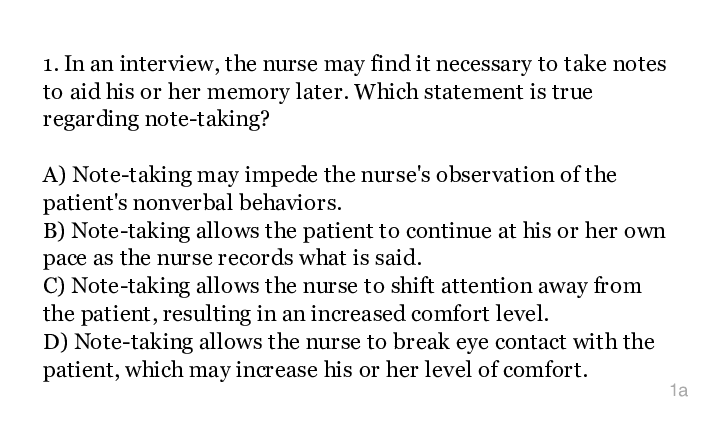Health Care > QUESTIONS & ANSWERS > HESI Health Assessment Practice Questions (#214) with Complete Solutions (All)
HESI Health Assessment Practice Questions (#214) with Complete Solutions
Document Content and Description Below
HESI Health Assessment Practice Questions (#214) with Complete Solutions 1. In an interview, the nurse may find it necessary to take notes to aid his or her memory later. Which statement is true r... egarding note-taking? A) Note-taking may impede the nurse's observation of the patient's nonverbal behaviors. B) Note-taking allows the patient to continue at his or her own pace as the nurse records what is said. C) Note-taking allows the nurse to shift attention away from the patient, resulting in an increased comfort level. D) Note-taking allows the nurse to break eye contact with the patient, which may increase his or her level of comfort. ✔✔A) Note-taking may impede the nurse's observation of the patient's nonverbal behaviors. Page: 31 Some use of history forms and note-taking may be unavoidable. But be aware that notetaking during the interview has disadvantages. It breaks eye contact too often, and it shifts attention away from the patient, which diminishes his or her sense of importance. It also may interrupt the patient's narrative flow, and it impedes the observation of the patient's nonverbal behavior. 2. During an interview, the nurse states, "You mentioned shortness of breath. Tell me more about that." Which verbal skill is used with this statement? A) Reflection B) Facilitation C) Direct question D) Open-ended question ✔✔D) Open-ended question Page: 32 The open-ended question asks for narrative information. It states the topic to be discussed but only in general terms. The nurse should use it to begin the interview, to introduce a new section of questions, and whenever the person introduces a new topic. 3. A nurse is taking complete health histories on all of the patients attending a wellness workshop. On the history form, one of the written questions asks, "You don't smoke, drink, or take drugs, do you?" This question is an example of: A) talking too much. B) using confrontation. C) using biased or leading questions. D) using blunt language to deal with distasteful topics. ✔✔C) using biased or leading questions. Page: 36 This is an example of using leading or biased questions. Asking, "You don't smoke, do you?" implies that one answer is "better" than another. If the person wants to please someone, he or she is either forced to answer in a way corresponding to their implied values or is made to feel guilty when admitting the other answer. 4. During an interview, a parent of a hospitalized child is [Show More]
Last updated: 2 years ago
Preview 1 out of 139 pages
.png)
Buy this document to get the full access instantly
Instant Download Access after purchase
Buy NowInstant download
We Accept:

Also available in bundle (1)
.png)
HESI Health Assessment Bundled Exams Questions and Answers with Verified Solutions
HESI Health Assessment Bundled Exams Questions and Answers with Verified Solutions
By Nutmegs 2 years ago
$20
13
Reviews( 0 )
$12.00
Can't find what you want? Try our AI powered Search
Document information
Connected school, study & course
About the document
Uploaded On
Feb 04, 2023
Number of pages
139
Written in
Additional information
This document has been written for:
Uploaded
Feb 04, 2023
Downloads
0
Views
104


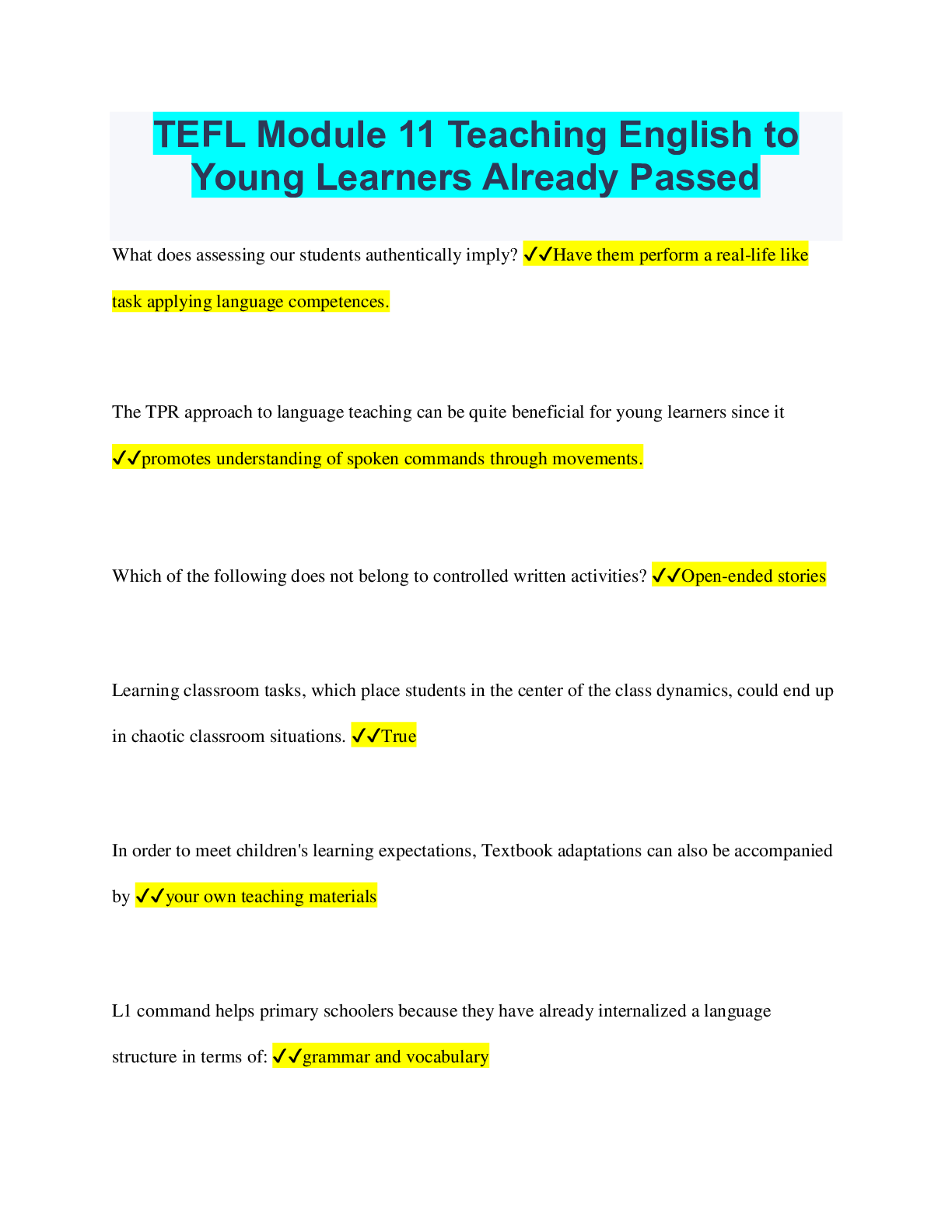
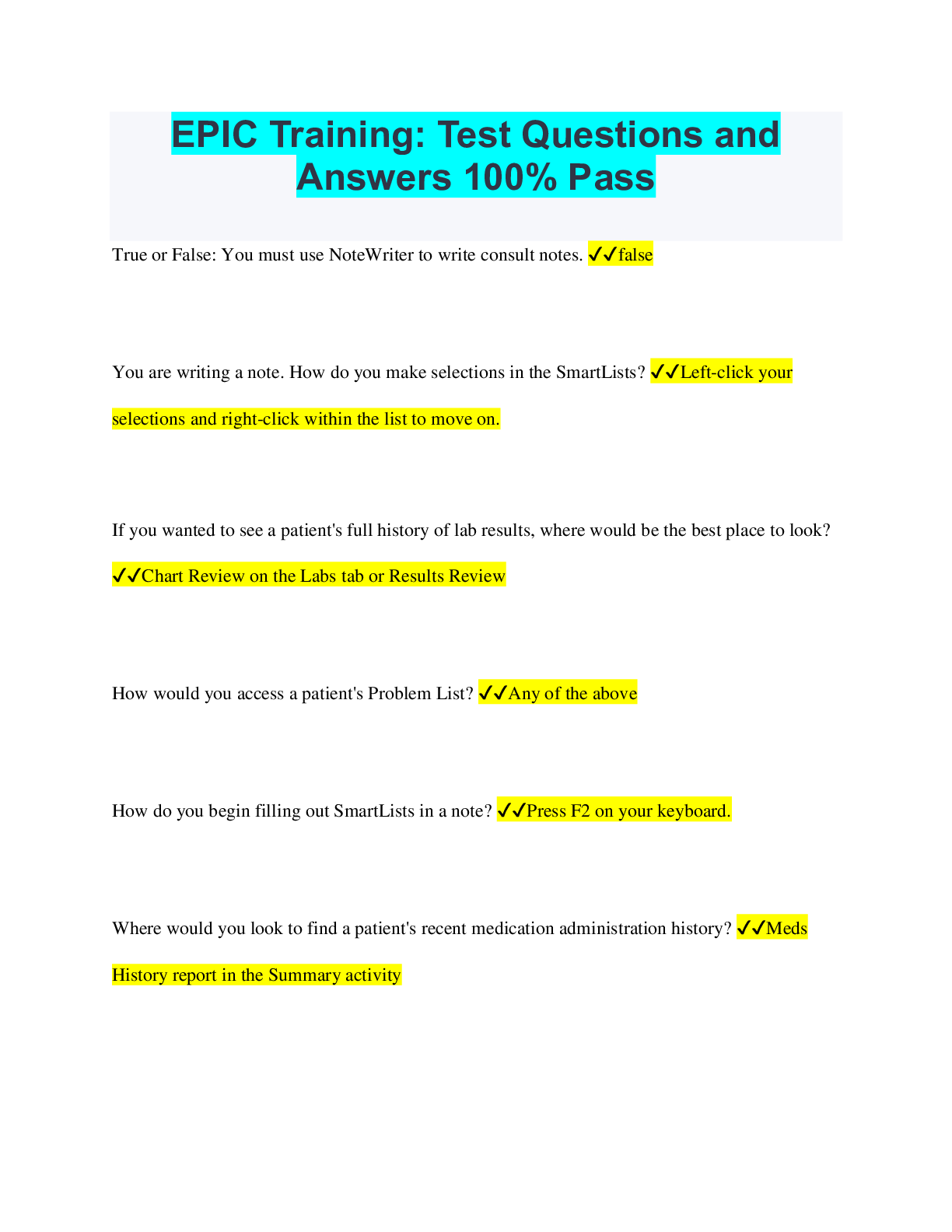
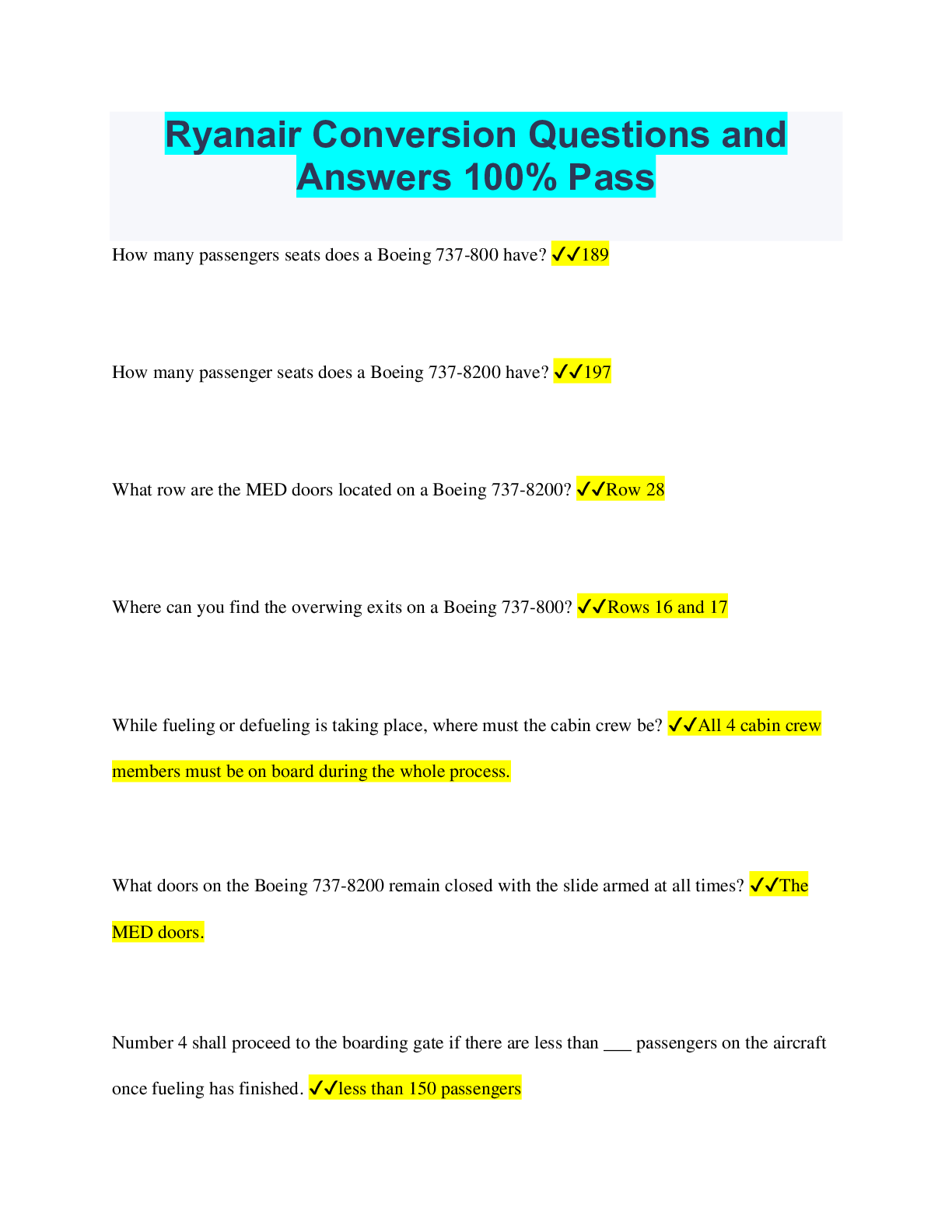
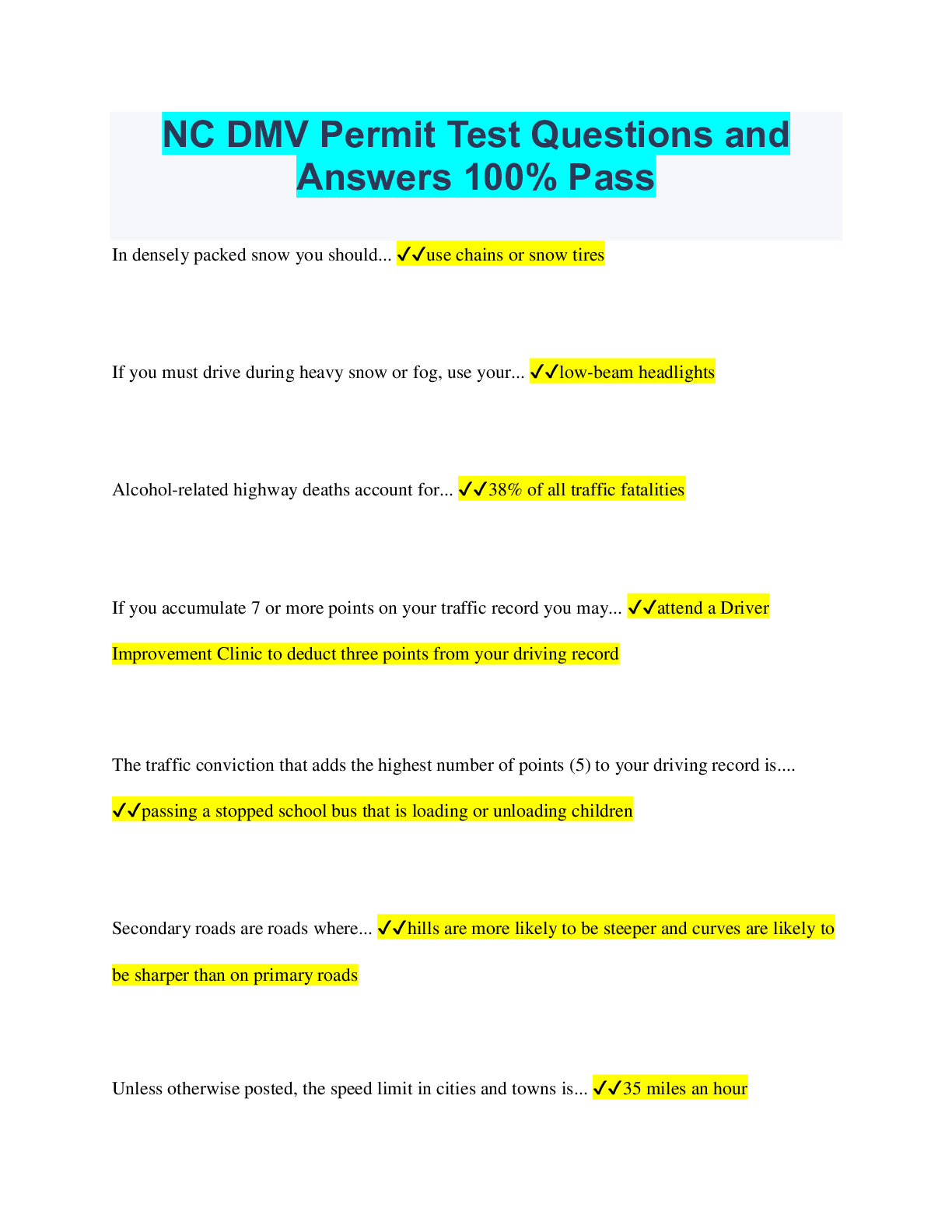
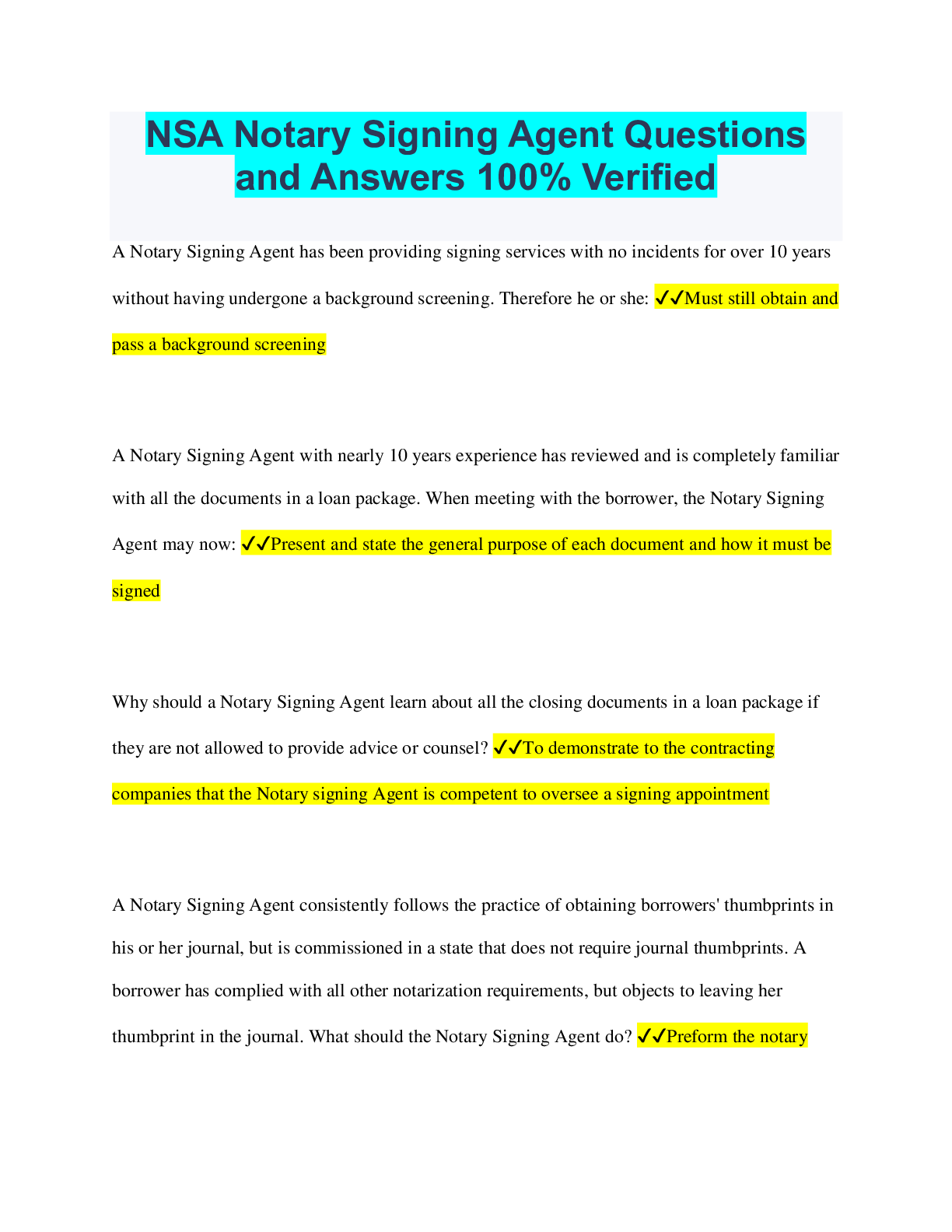
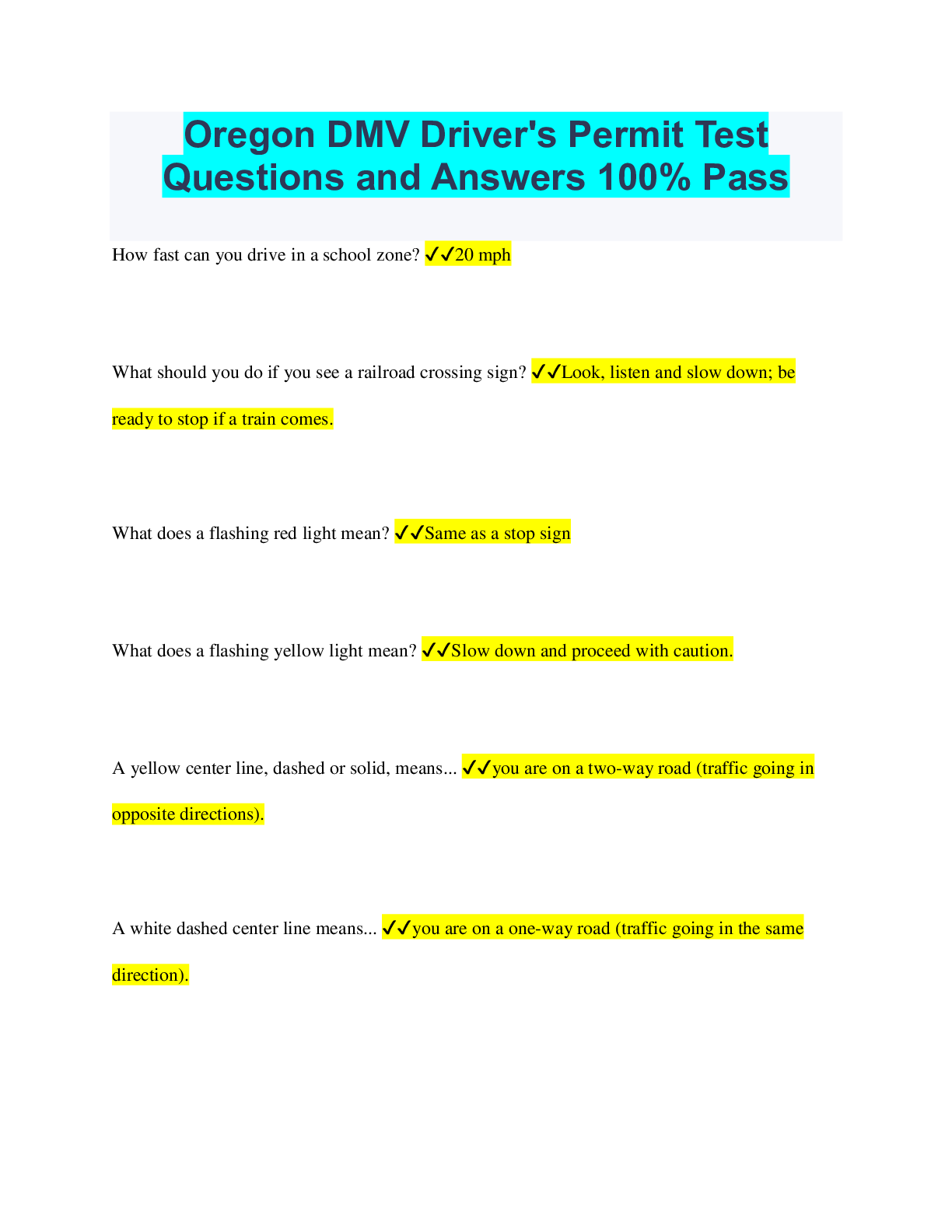
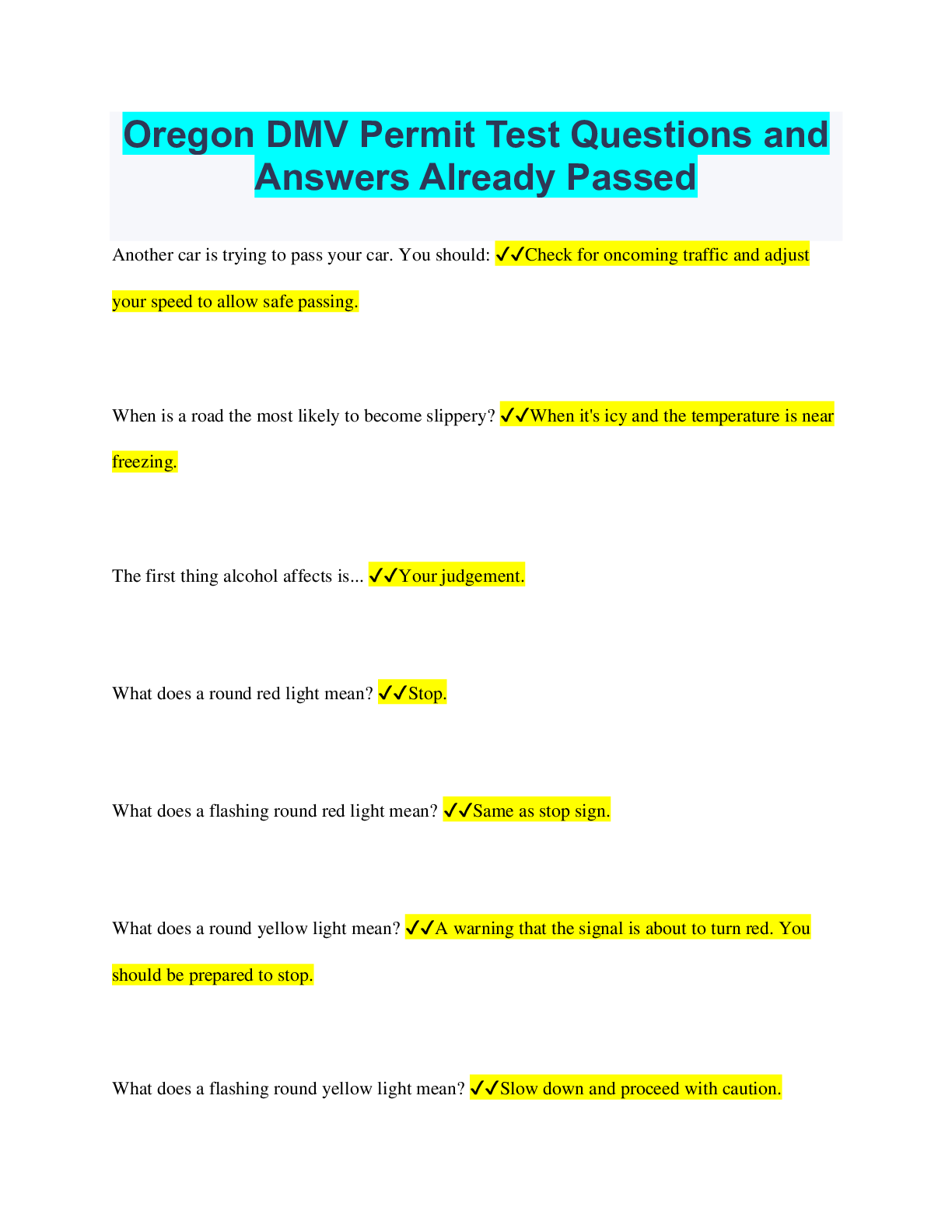
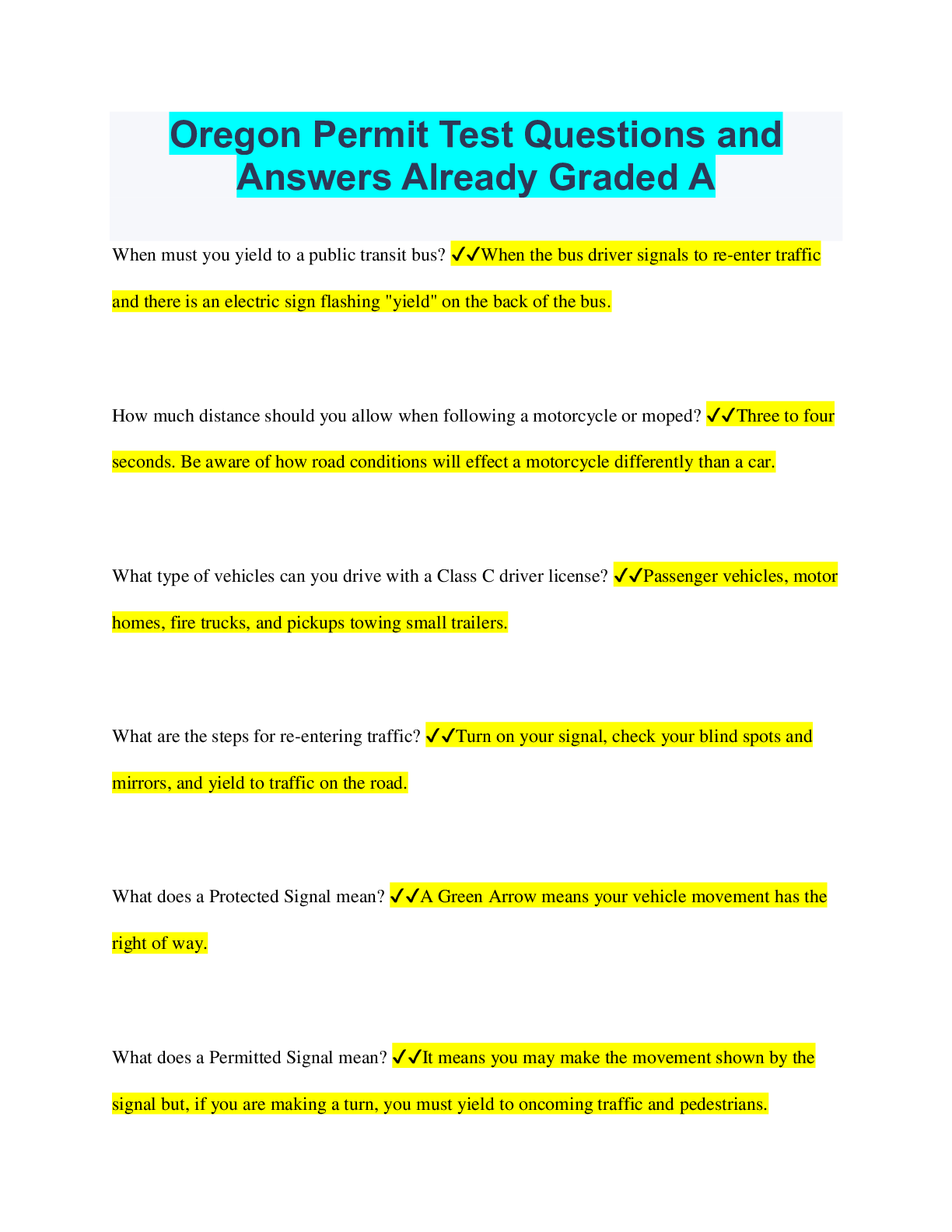
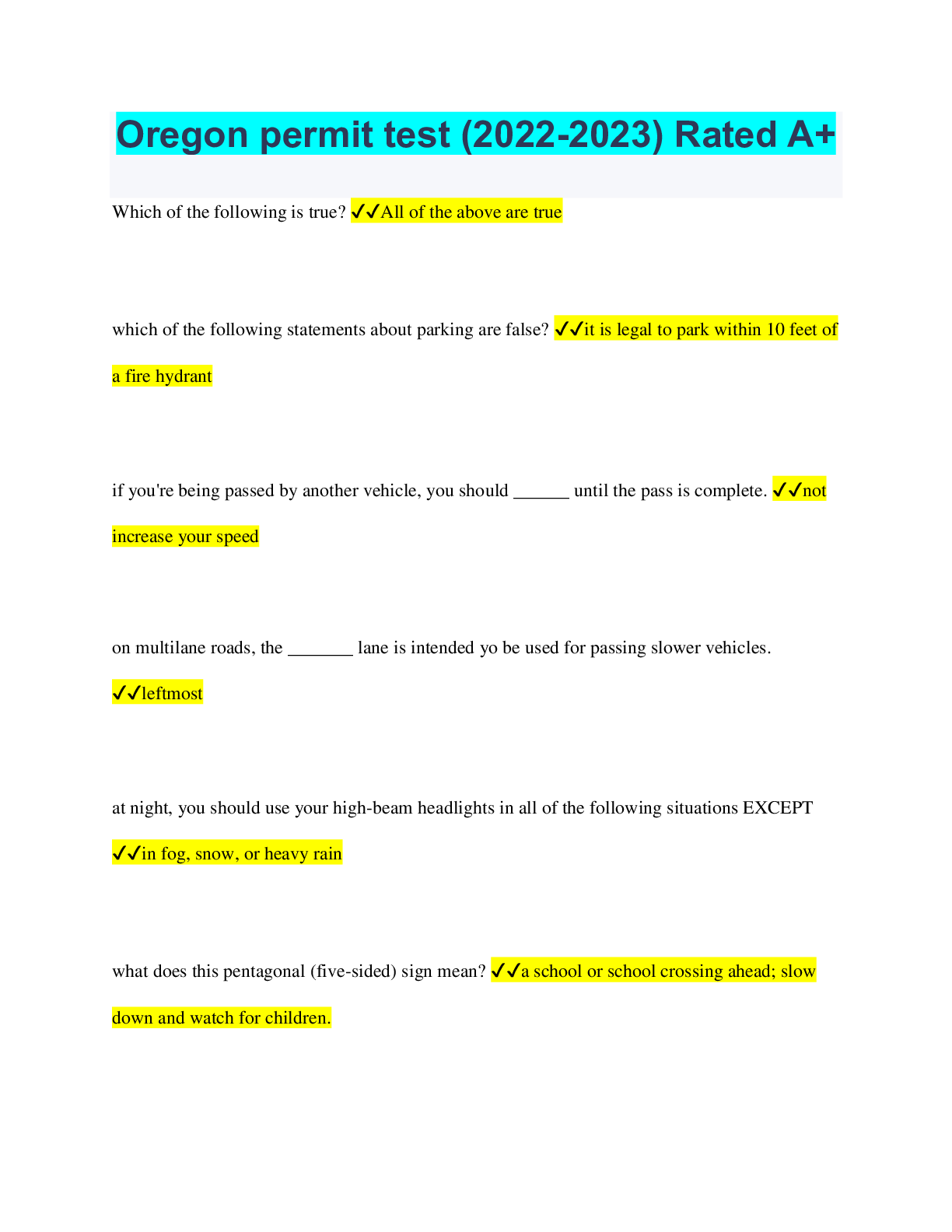
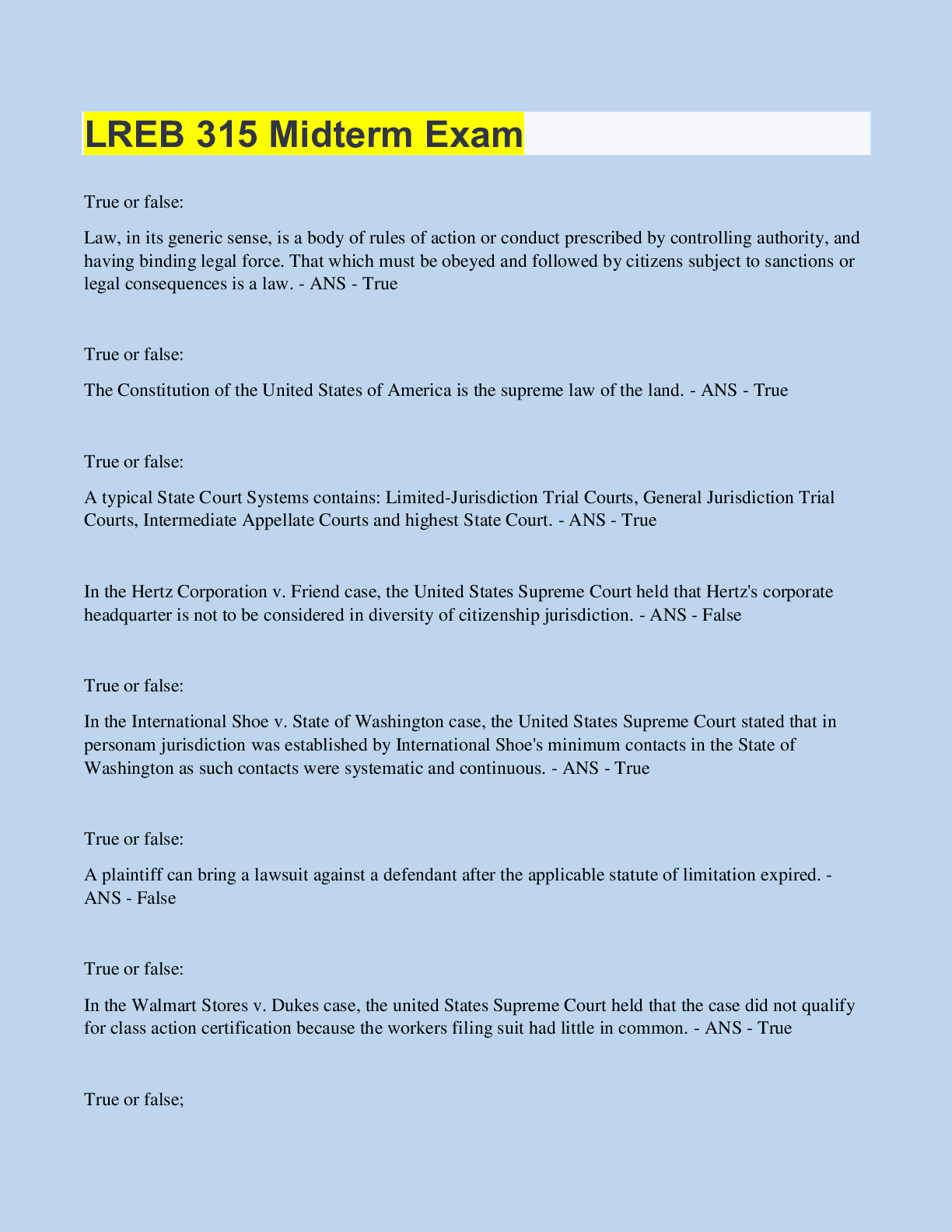
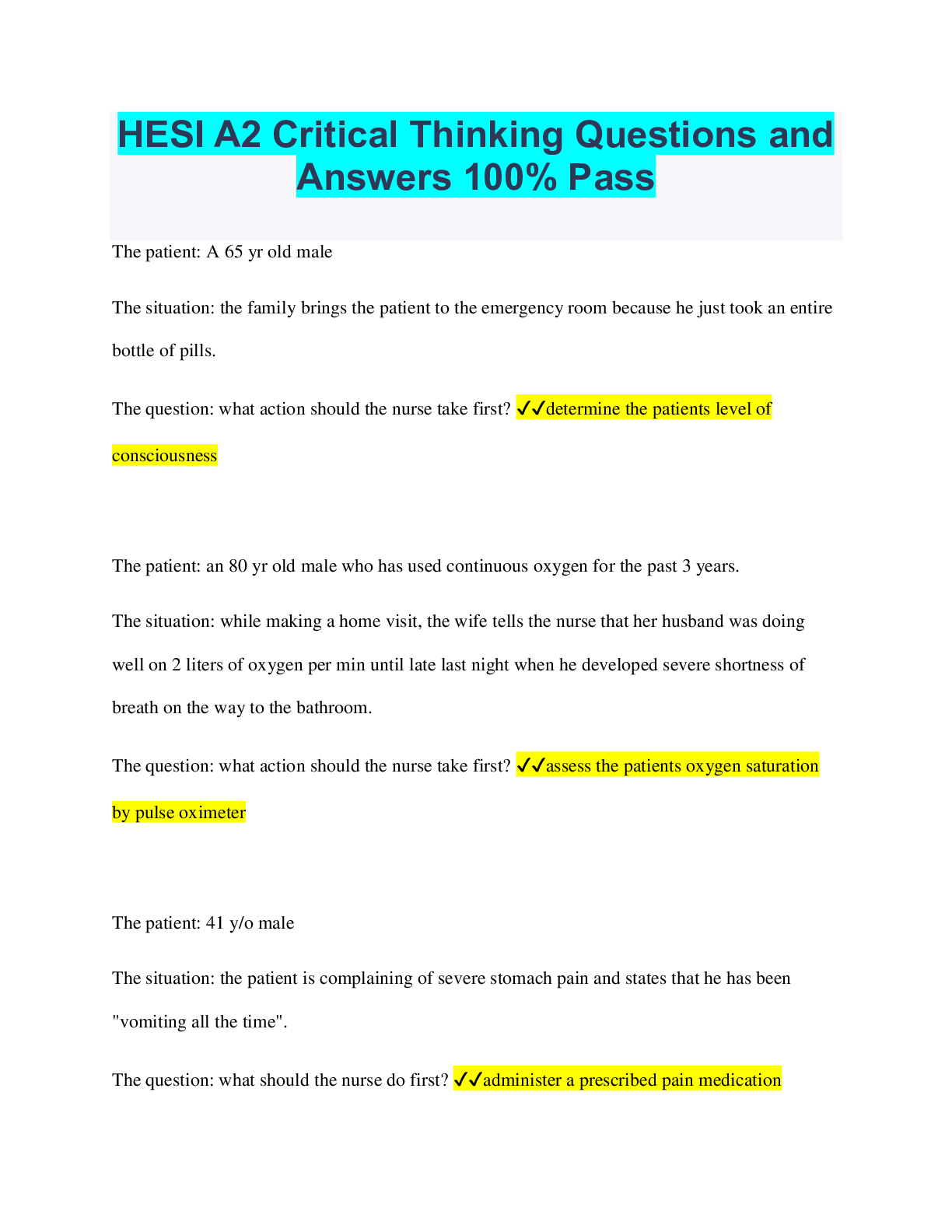

.png)
.png)
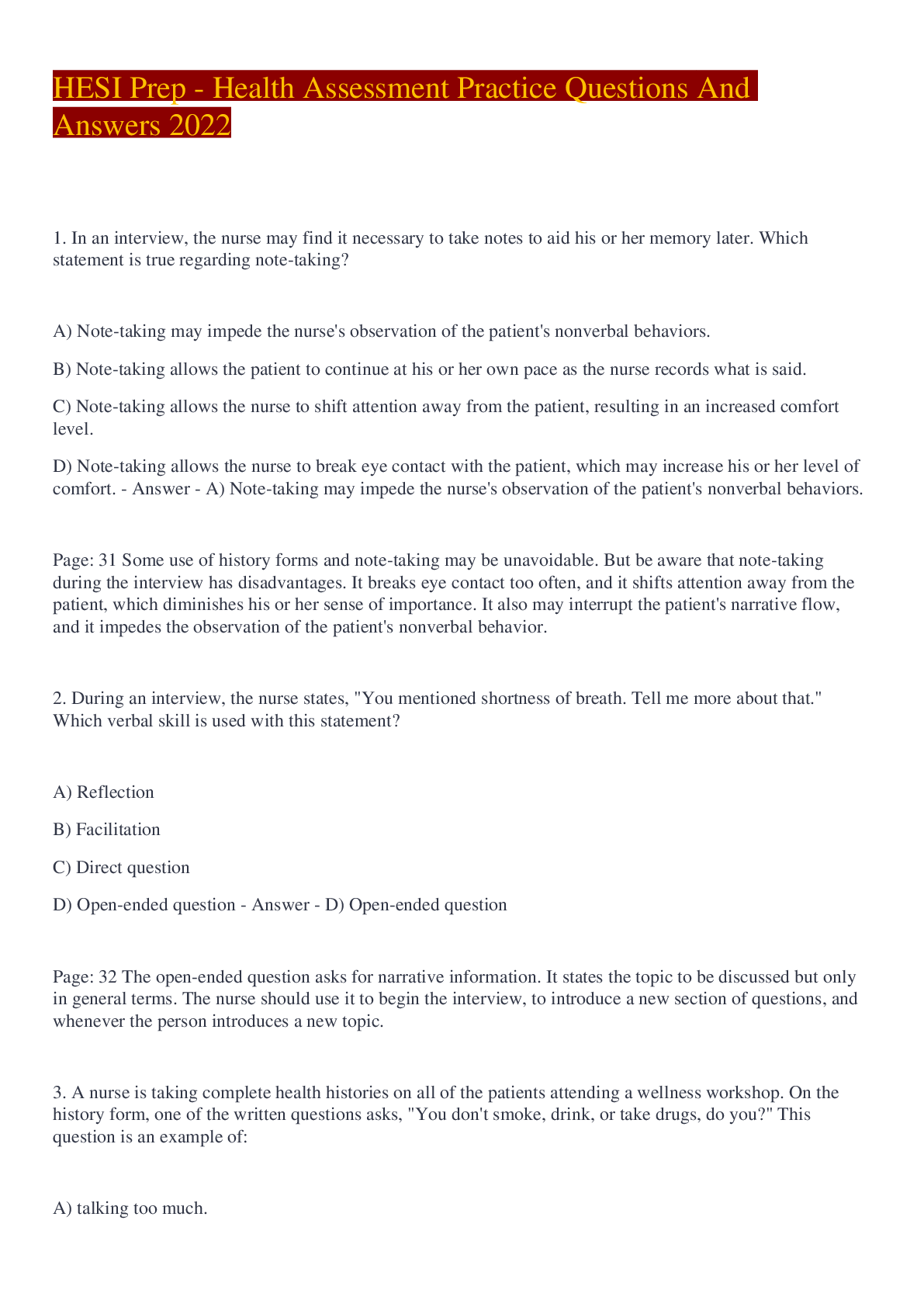
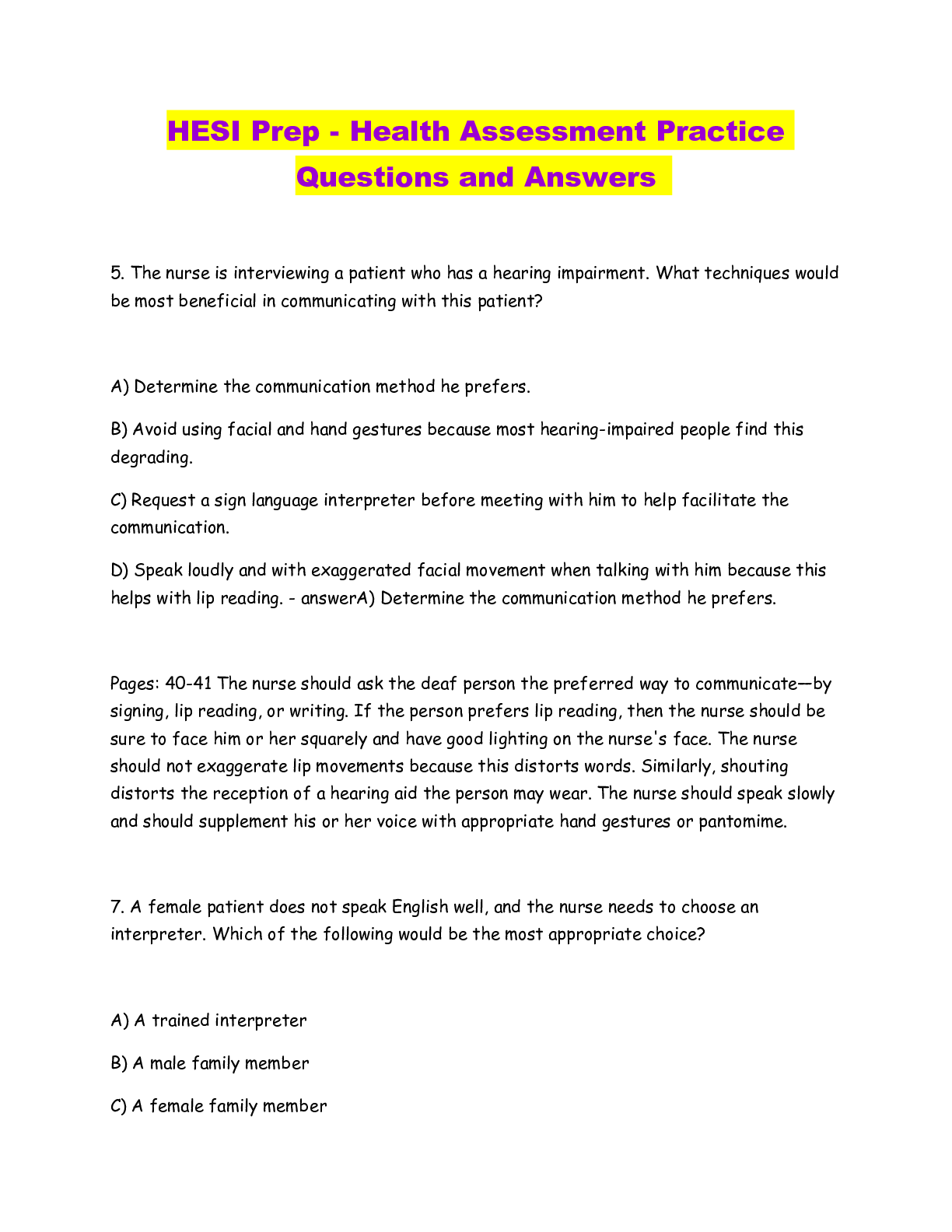


.png)
.png)
.png)
